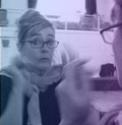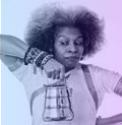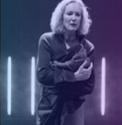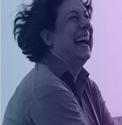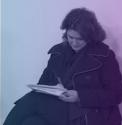Afternoon tea in Brisbane
Magdalena Afternoon Tea Blog
I thought I’d write a short blog for those who were interested but unable to attend today’s Magdalena@25 afternoon tea at my place. This is by no means a comprehensive description of the conversation that took place, but if you were one of the women who just couldn’t be there today, here’s a taste of the ground covered:
Suzon Fuks, Anna Yen, Georgia Indigo Fidez and Scotia Monkivitch attended in person and Katt Osborne of the Duck House skyped in from Perth. Apologies were forthcoming from Julie Robson, Margi Brown Ash, Margery Forde, Therese Collie, Lisa Businovski, Lucinda Shaw, Kara Beavis, Karen Anderson, Katherine Lyall Watson, Sue Rider and Flloyd Kennedy; and Jill Greenhalgh sent sleepy Sunday morning greetings from Wales.
The purpose of the afternoon tea was simply to create an opportunity for women theatre-makers in Brisbane to connect in an informal manner and for Katt and I to share some highlights from attending the Magdalena@25 Festival. In the spirit of keeping practice at the centre of any meeting, Katt and I began by making a small performance gesture. We offered a simple image and some text that emerged from a research and development project we participated in after the festival. Then we spoke in turn about our highlights.
A key highlight and one we both shared was our delight in seeing so many senior women artists bringing new work to this festival. Many of the first generation Magdalenas are now into their fifth and sixth decades. In Australia it is rare to see women of this age group claiming space centre-stage. At Magdalena@25 it was the norm. Katt and I found it exciting to witness the eloquence and expressiveness of older women’s bodies in performance, and Katt in particular had a sense of now knowing upon whose shoulders she stands as she develops her own body of work together with her colleagues in The Duck House.
Adding to my delight was that much of the work had a quality of lightness and delicacy as well as humour. Some of the works were jaw-achingly funny. Beautiful and thought provoking offerings, large and small, came from Jill Greenhalgh (Wales), Cristina Castrillo (Argentina/Switzerland), Julia Varley (England/Denmark), Deb Hunt (NZ/Puerto Rico), Gilly Adams (Wales) & Maria Porter (USA), Jolanta Krukowska (Poland), and Madeline McNamara (Aotearoa), and of course many, many more. I was struck anew by the dynamism of the network and inspired to see these more senior artists continue to explore new ground. Katt said she was challenged to think about structure in new ways after learning more about the horizontal structure of the Project.[1]
The conversation then revolved around various workshops Katt had attended, programming challenges[2], online performance platforms and future workshops:
· Before leaving, Suzon said she would like to host a Brisbane session specifically to teach people how to use ‘The Tap’ on Waterwheel[3]. There is the possibility to use the Tap technology to attend even if you are not in Brisbane. We look forward to hearing more about it from Suzon.
· Scotia Monkivitch shared news of an April 2012 workshop focusing on women and oppression, led by a practitioner who was a student of Augusto Boal. This workshop will have a performance outcome and Scotia will be posting more information about this as it becomes available.
· I reiterated my commitment to bring Margaret Cameron back to Brisbane in 2012. If you know Margaret’s work and want to participate in her workshop please let me know as places are bound to fill quickly. I hope to confirm dates in the next few weeks.
The latter part of the conversation moved in and around issues of women, violence, silence, and the practice of making theatre.
I’d like to thank Katt, Suzon, Anna, Georgia and Scotia for attending, and I look forward to the next opportunity for us to come together. I especially would like to welcome Georgia who is reconnecting with the Project for the first time since the 2003 festival. Thanks to Katt, too, for taking the time to co-create the performance gesture, and for joining us for an hour from the other side of the continent.
[1] This is a point worth emphasizing, particularly for those in Australia who are connecting with the Project for the first time. The Magdalena Project has no administrative or organizational centre. At its core are the aims and objectives as outlined on the website. There are many traditions that have established themselves over the twenty-five years, and these traditions form part of the rich legacy. But rich as they are, they are not ‘rules’. However, if anyone wants to organise a Magdalena event for the first time (i.e. a festival or large meeting) it is generally recommended she attend at least one or two international meetings first.
[2] There was only one real clash in the Magdalena@25 program. On the Saturday morning audiences had to make a choice between an online event that involved physically entering the homes of Cardiff locals to participate in a global on-line collaborative performance, or to attend a live work-in-progress reading in the theatre studio. The vast majority chose to attend the reading. This caused me to reflect on the physical theatre roots of the Project, and the challenge on-line artists face in a festival that privileges ‘live’ bodies. Suzon added that it calls into question what we understand as ‘presence’. A future forum, perhaps?
[3] Waterwheel is the new online performance platform Suzon has developed during her Australia Council for the Arts Fellowship. Check it out here: http://water-wheel.net/

